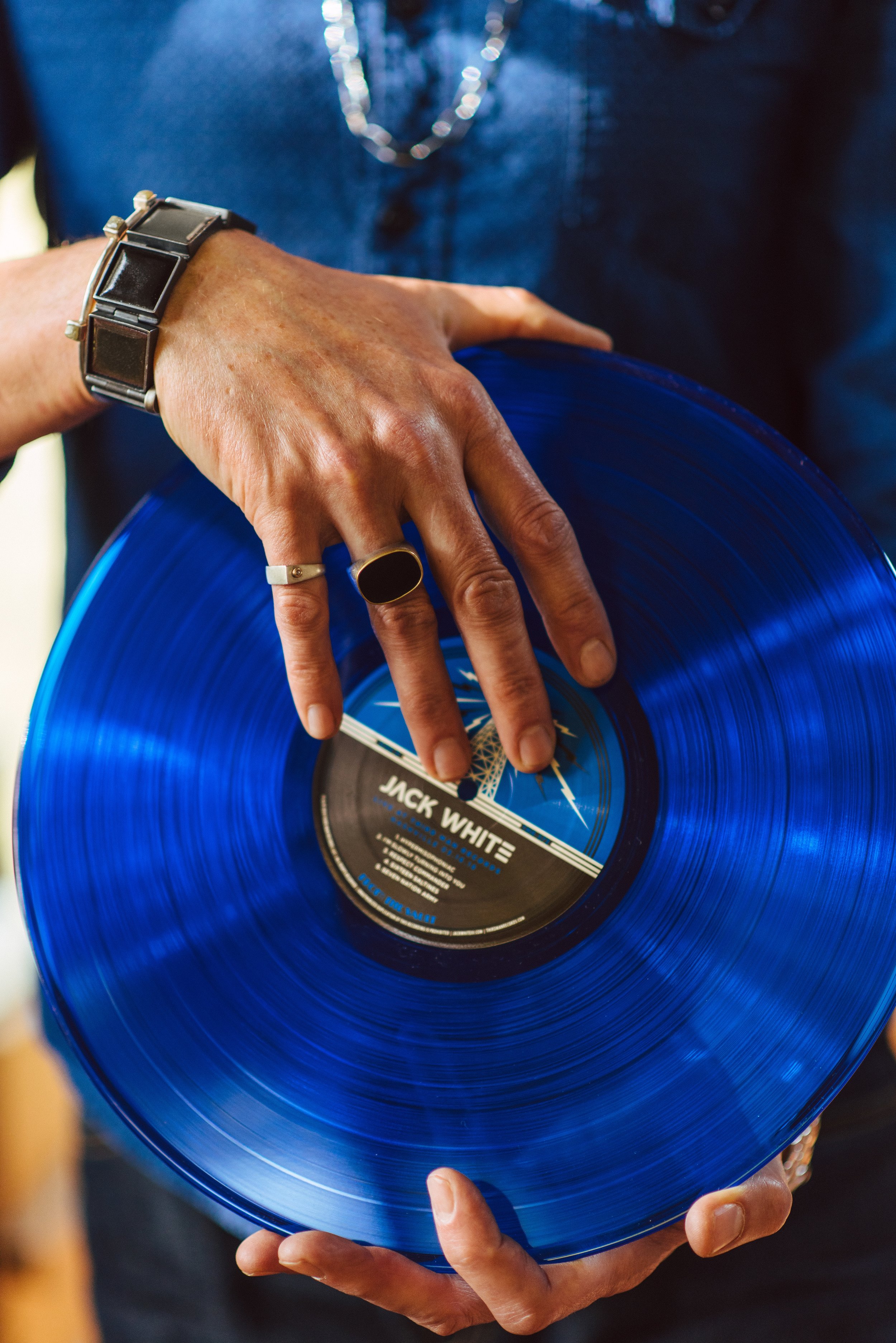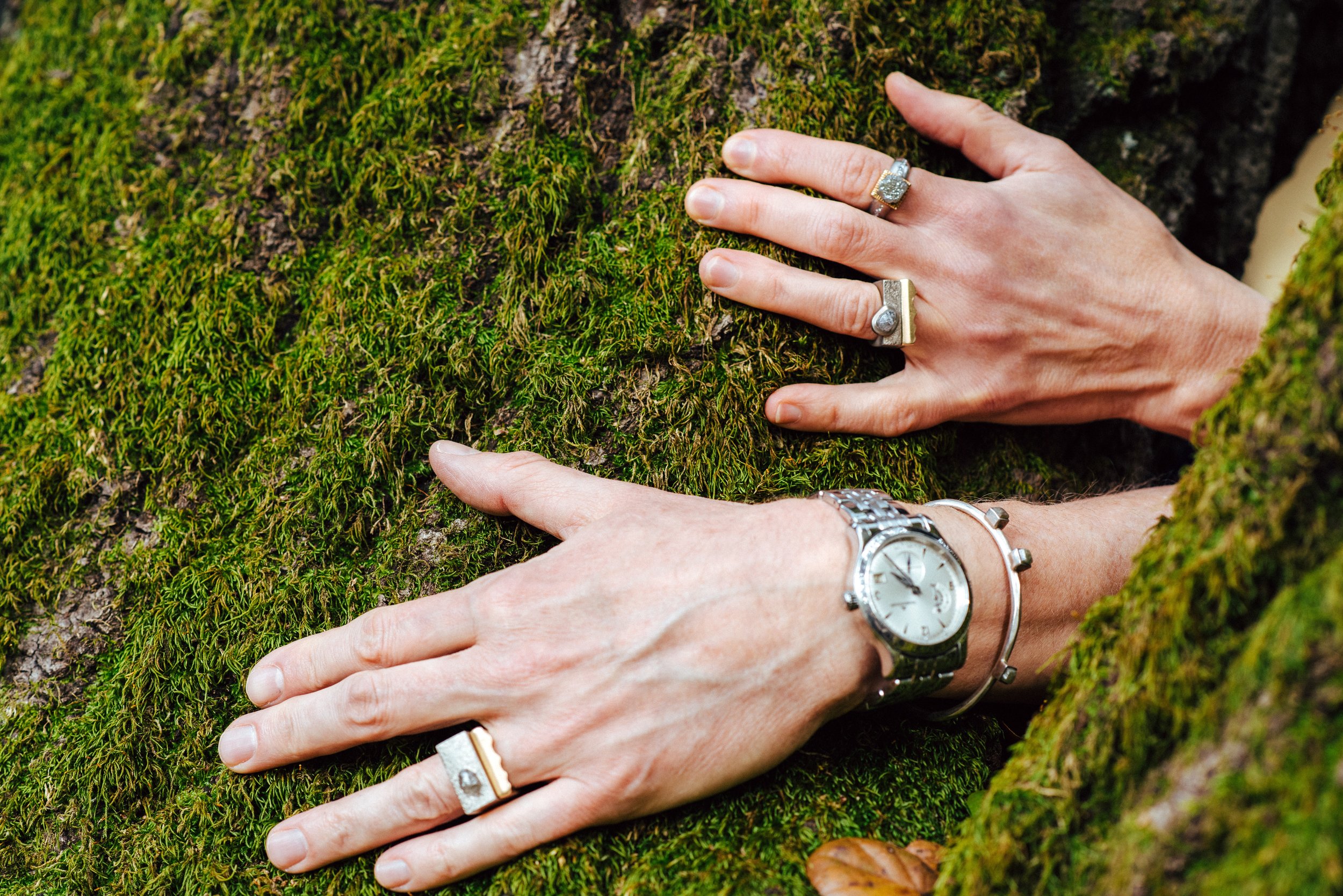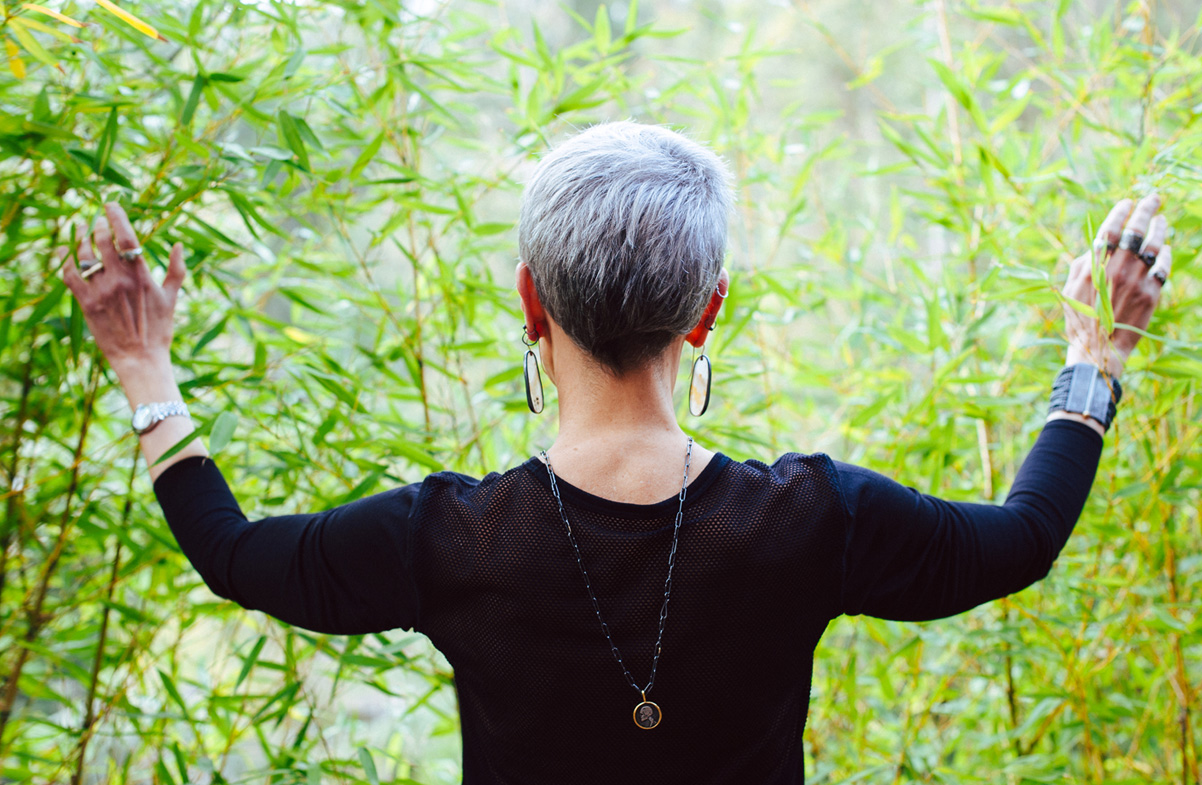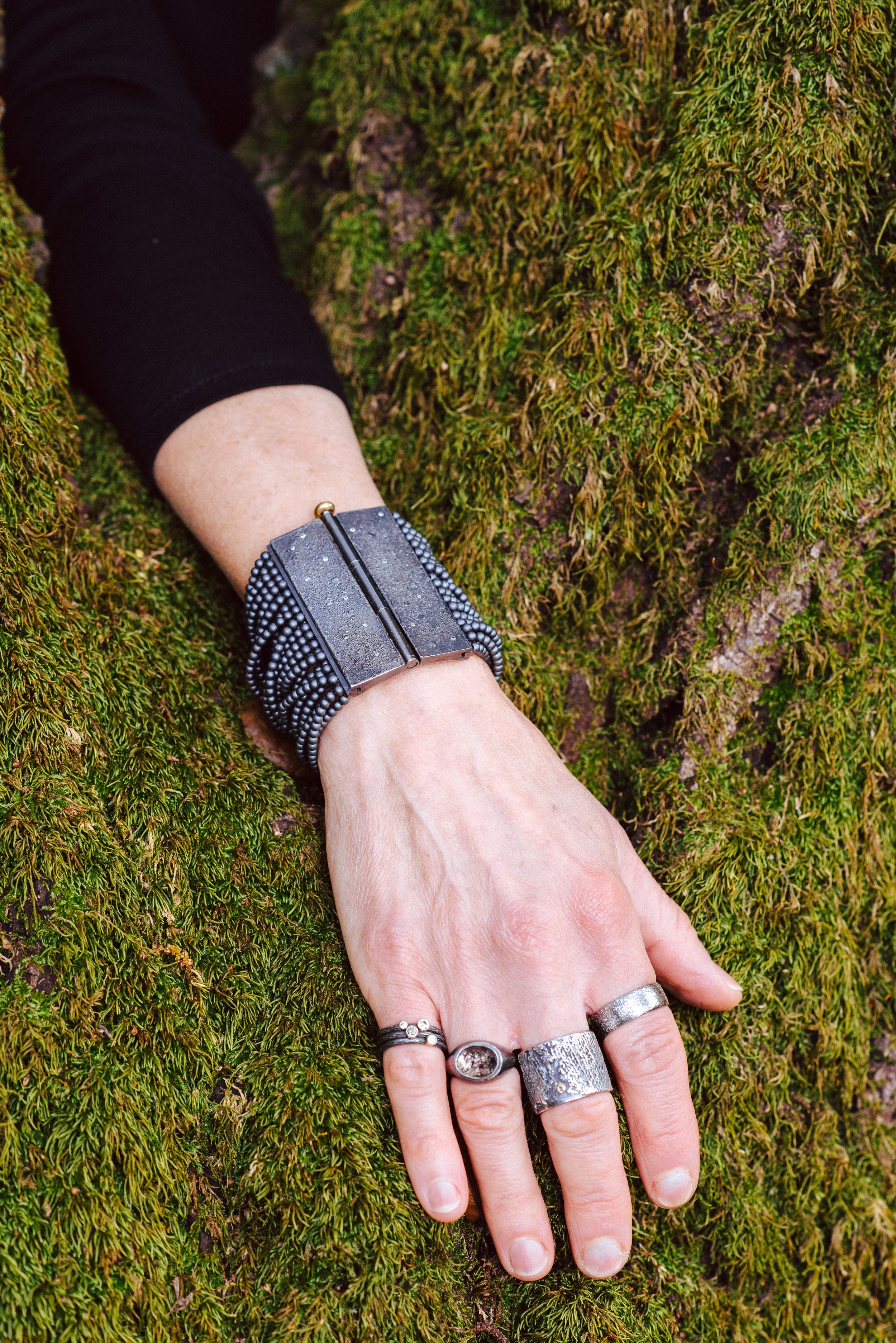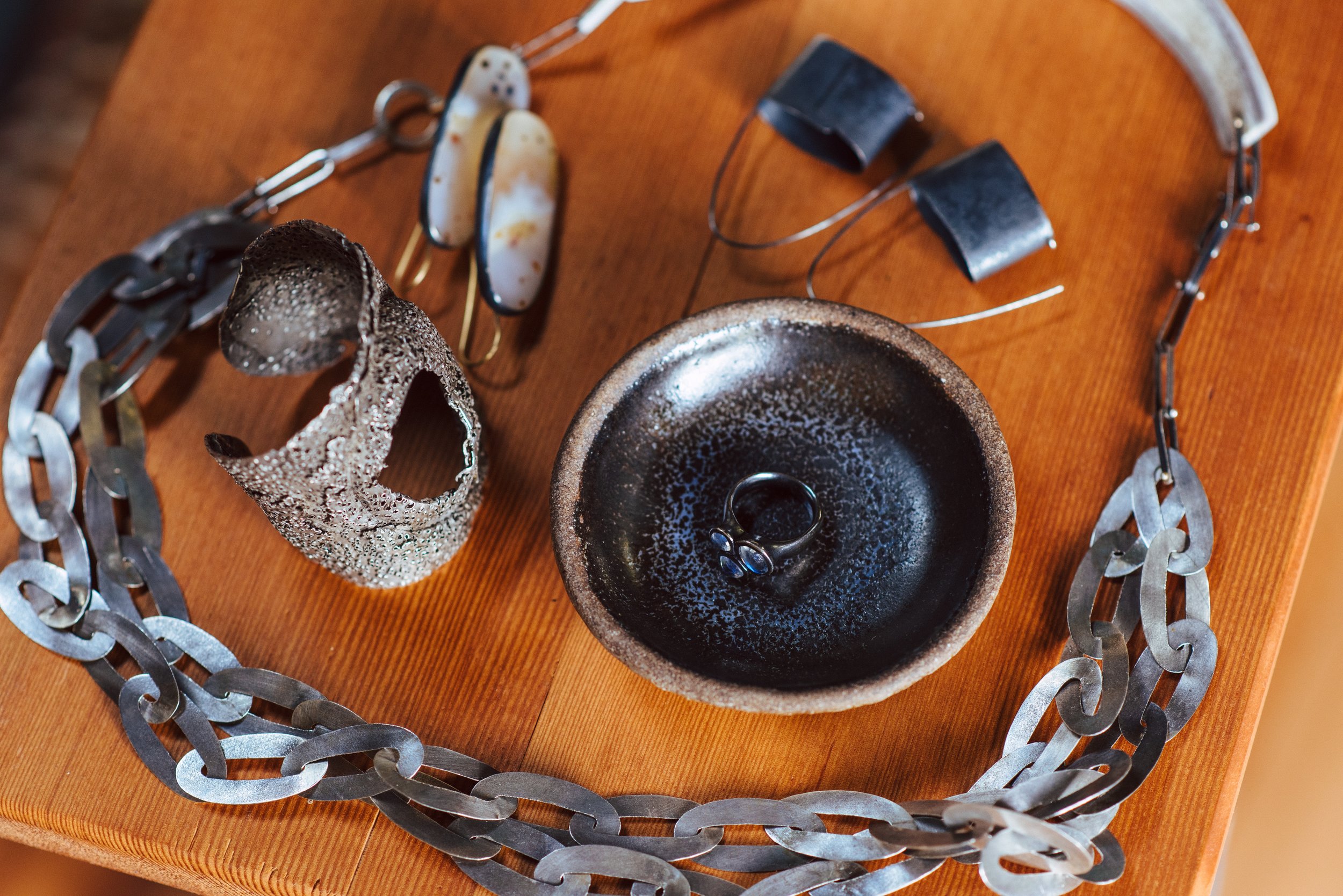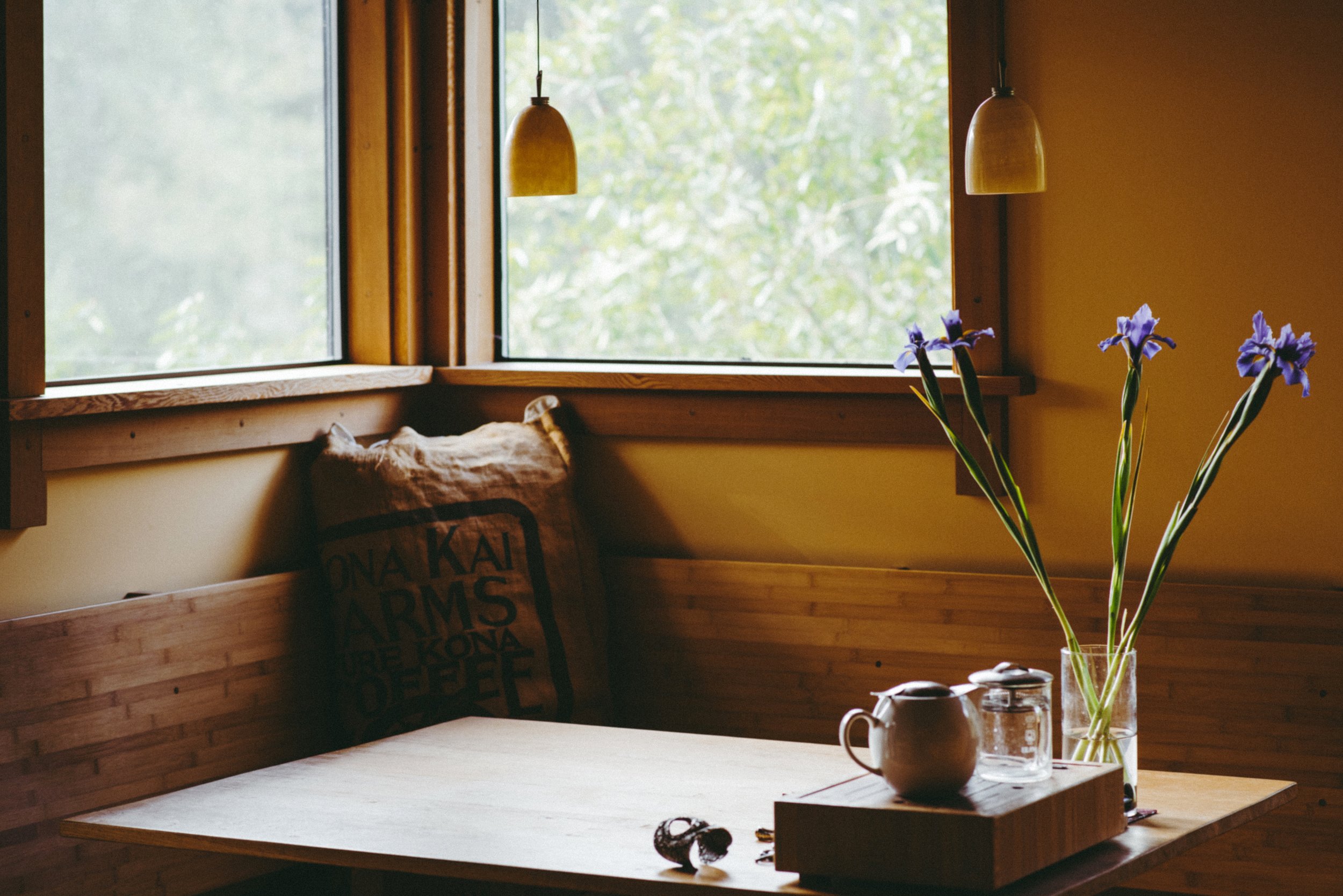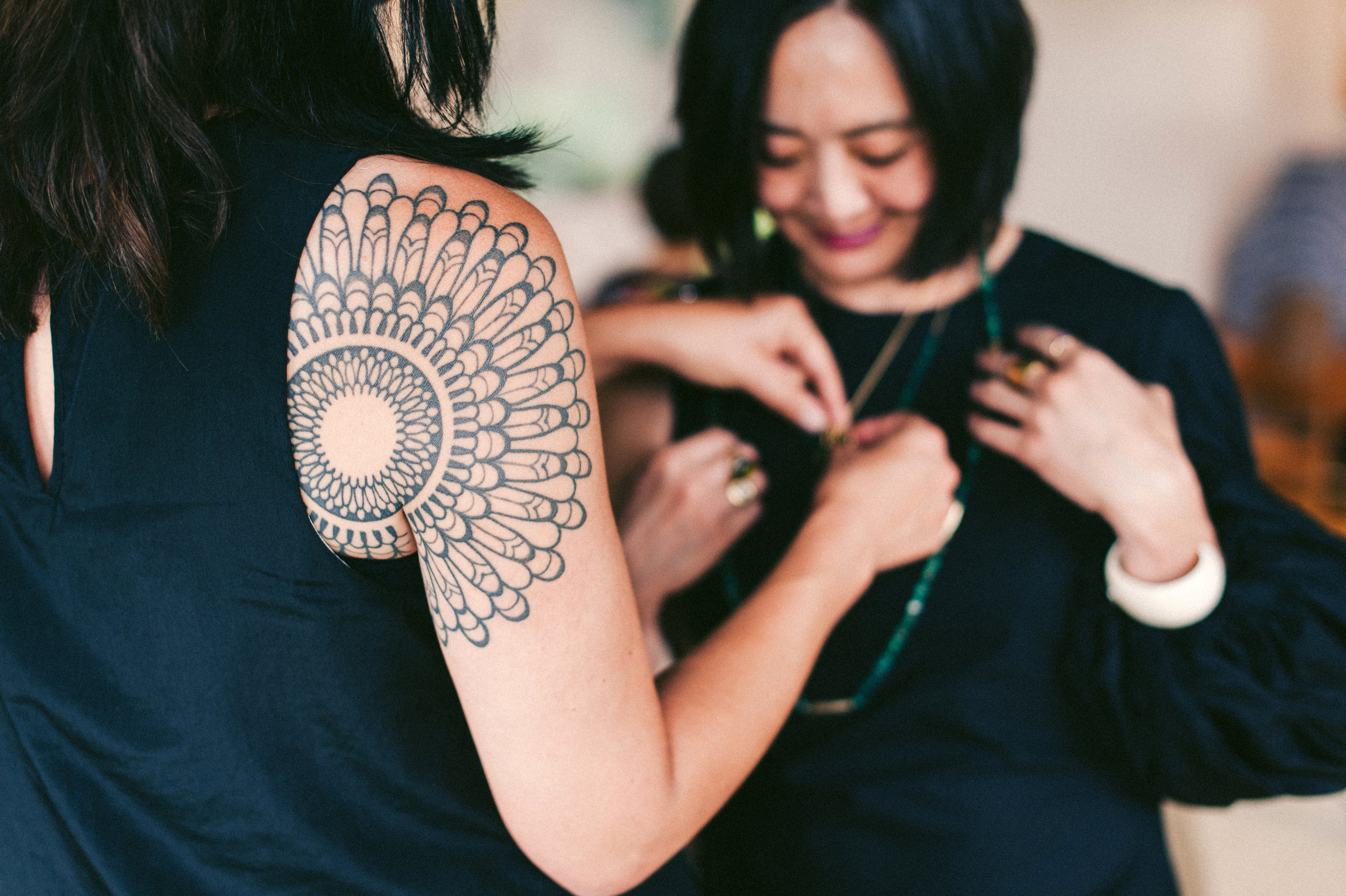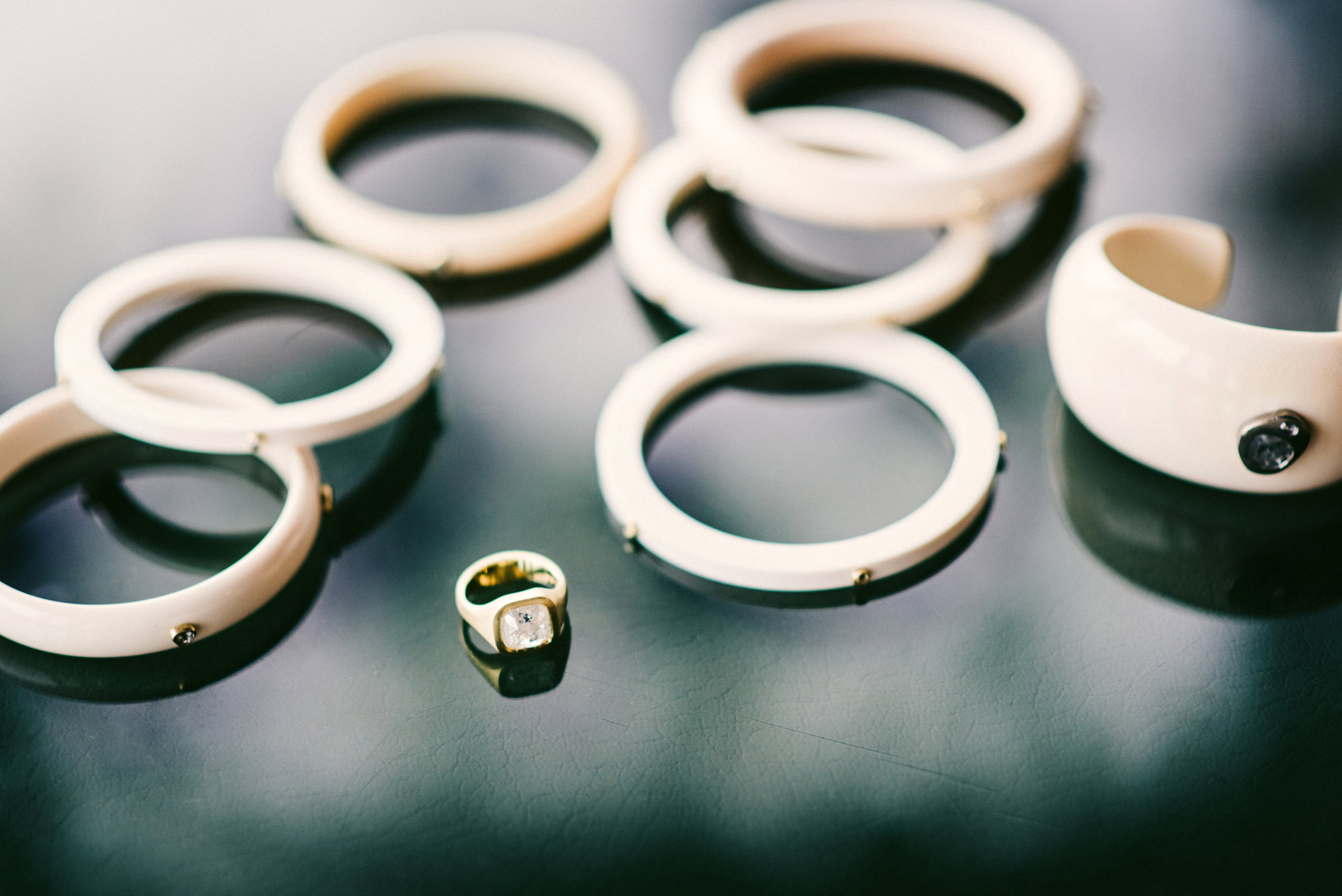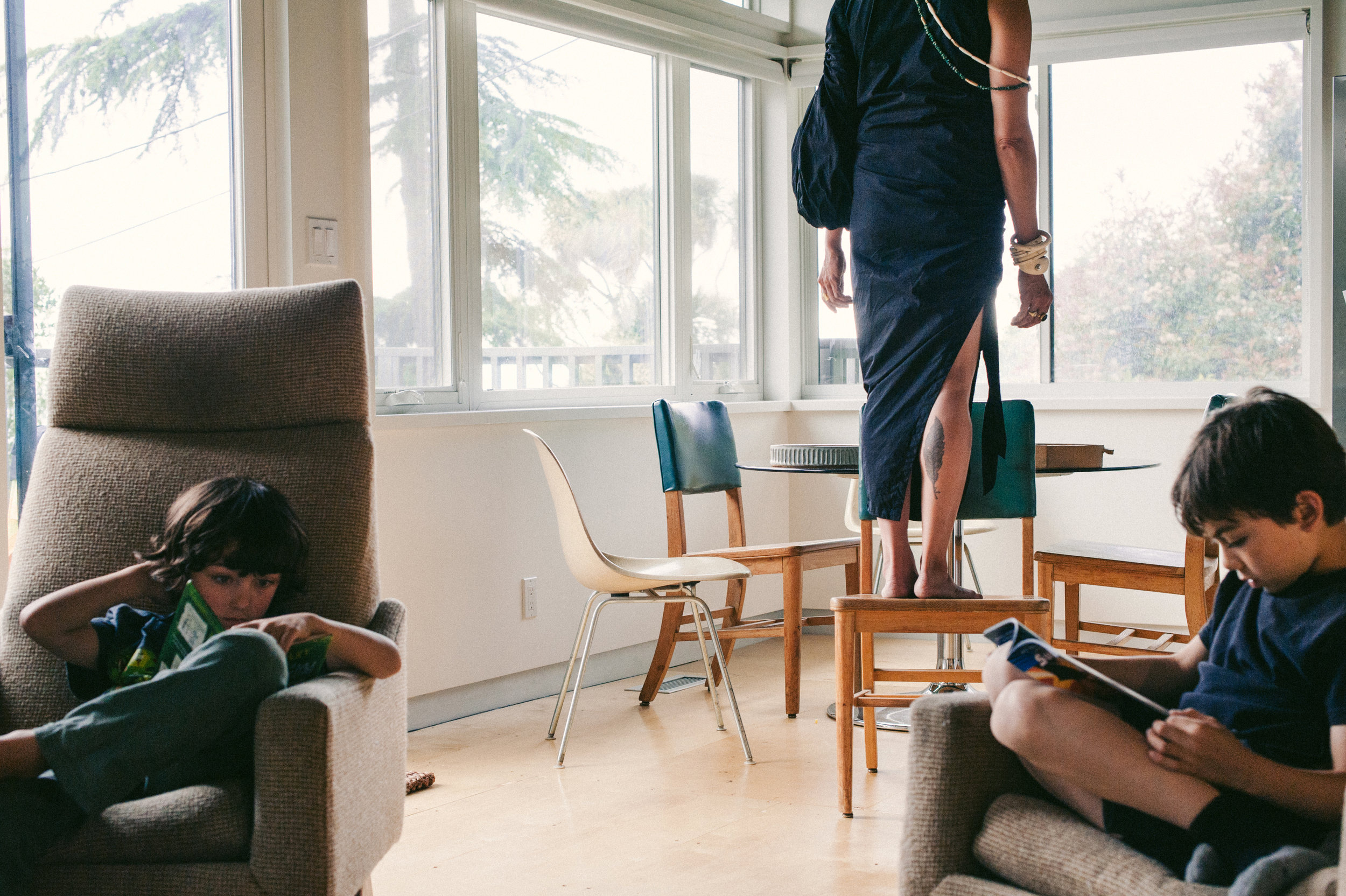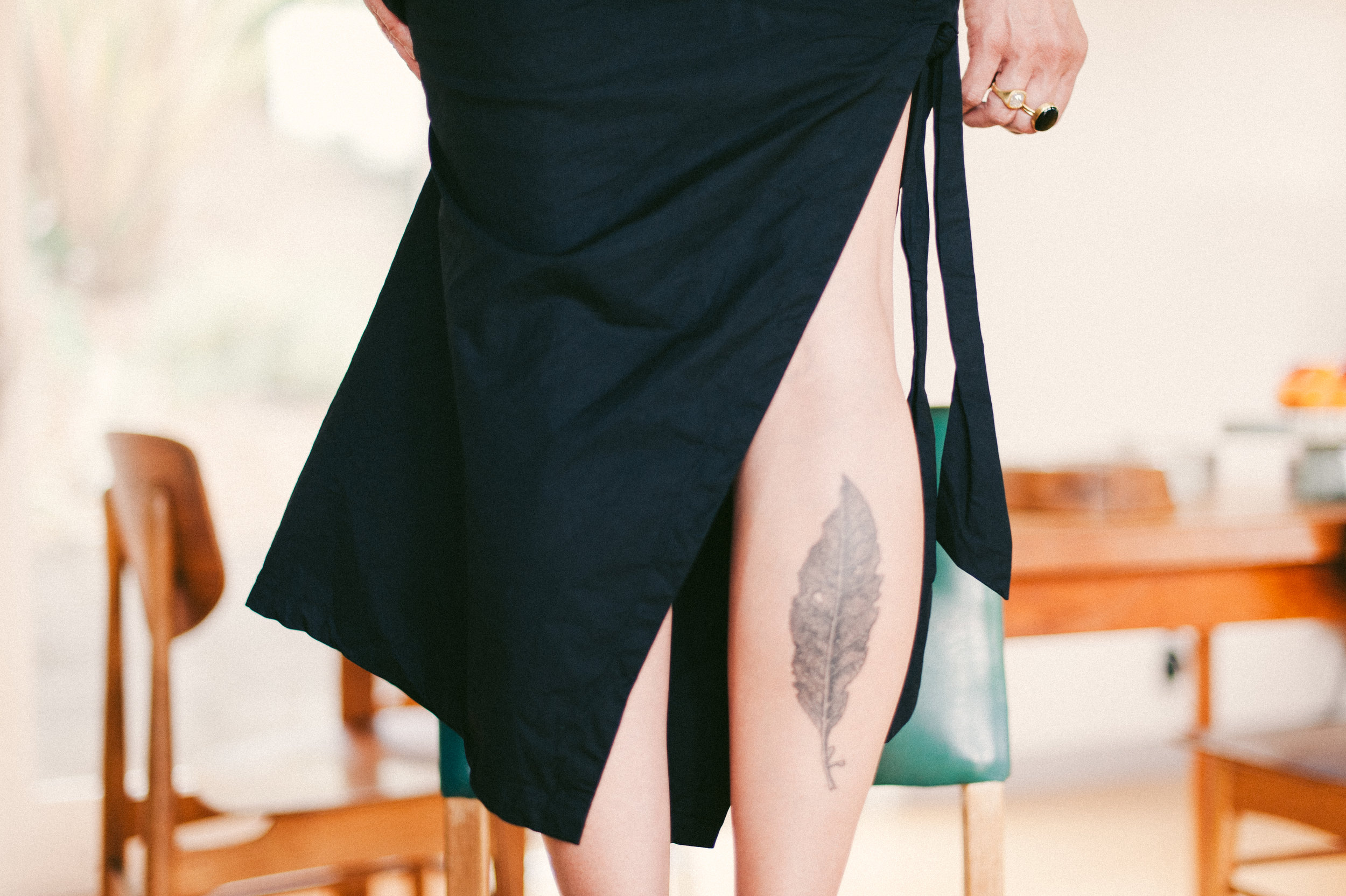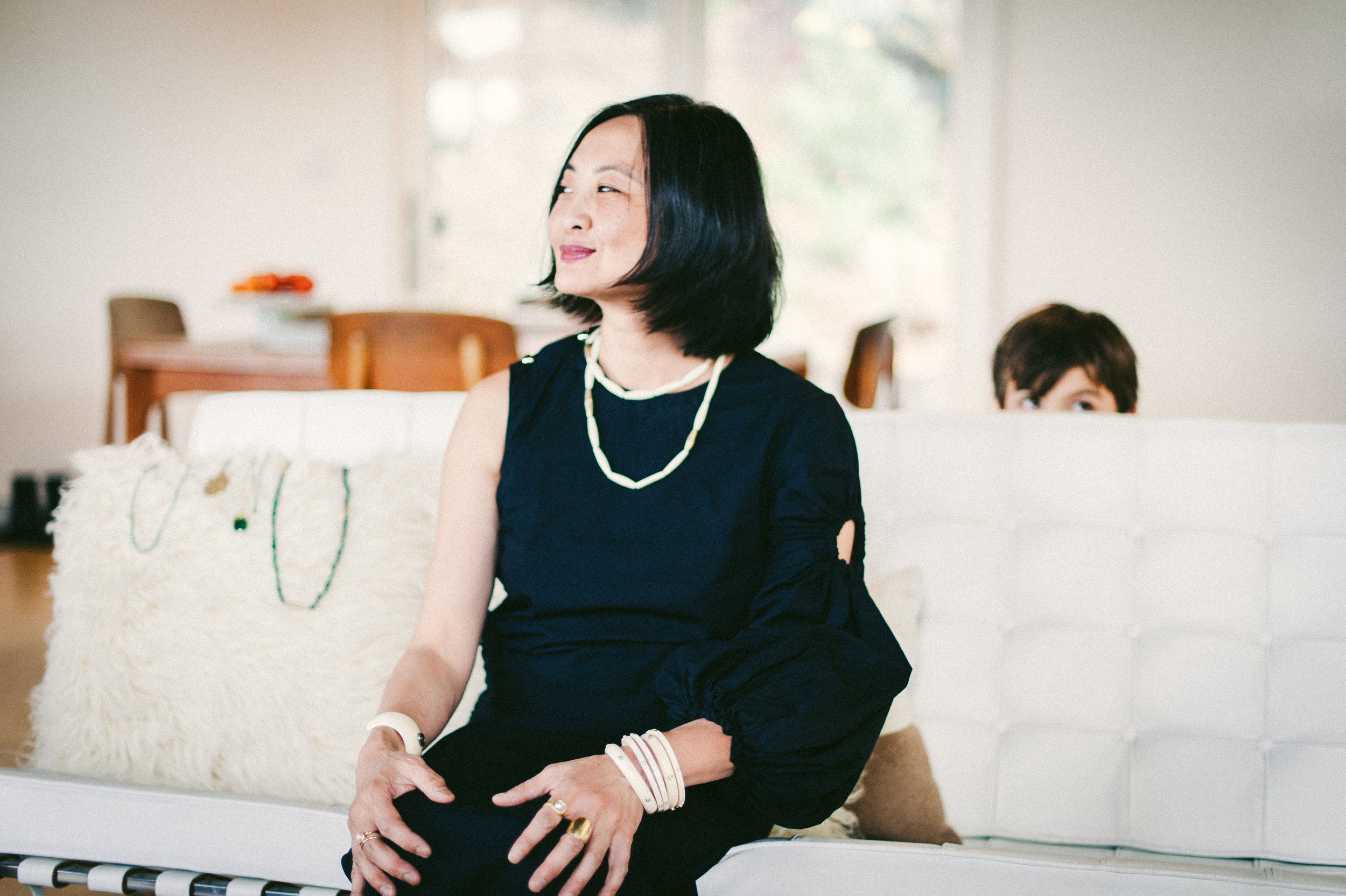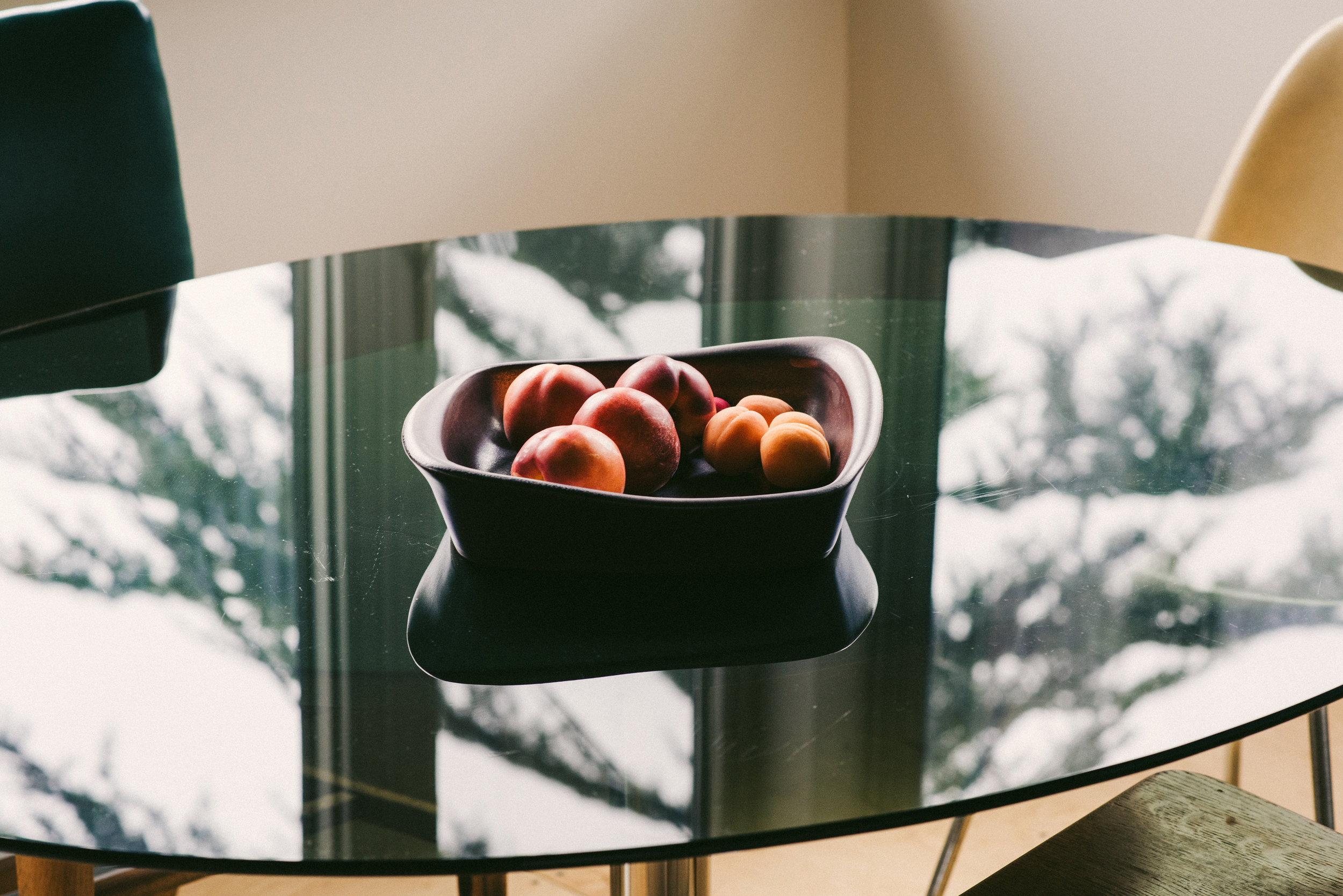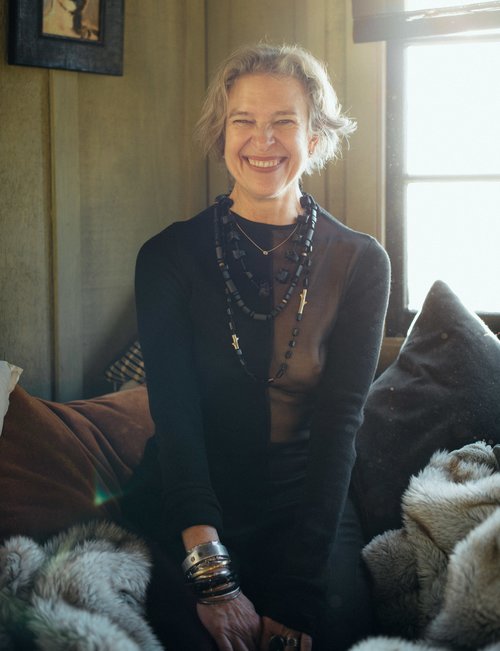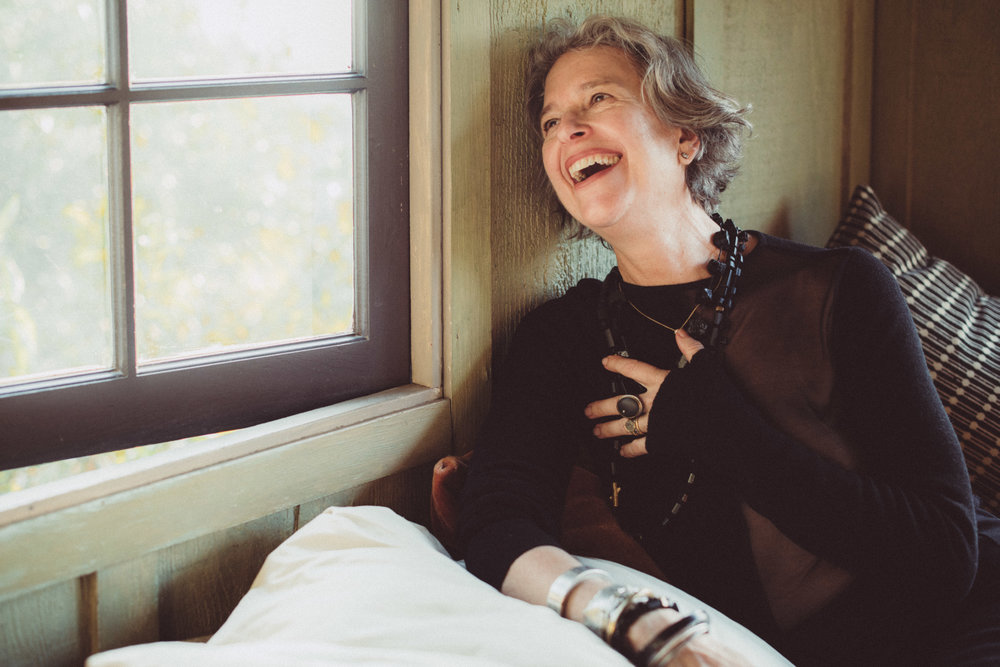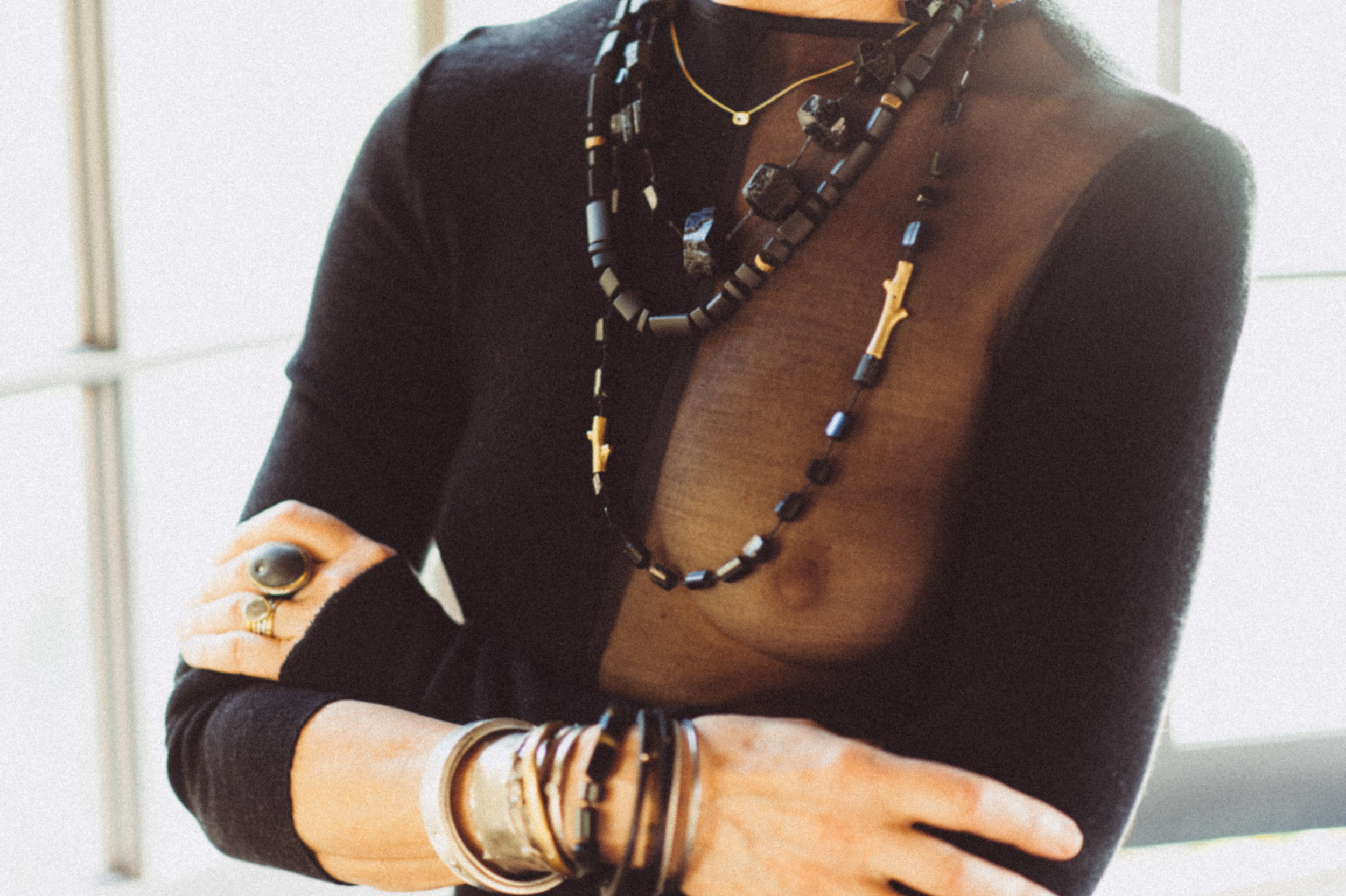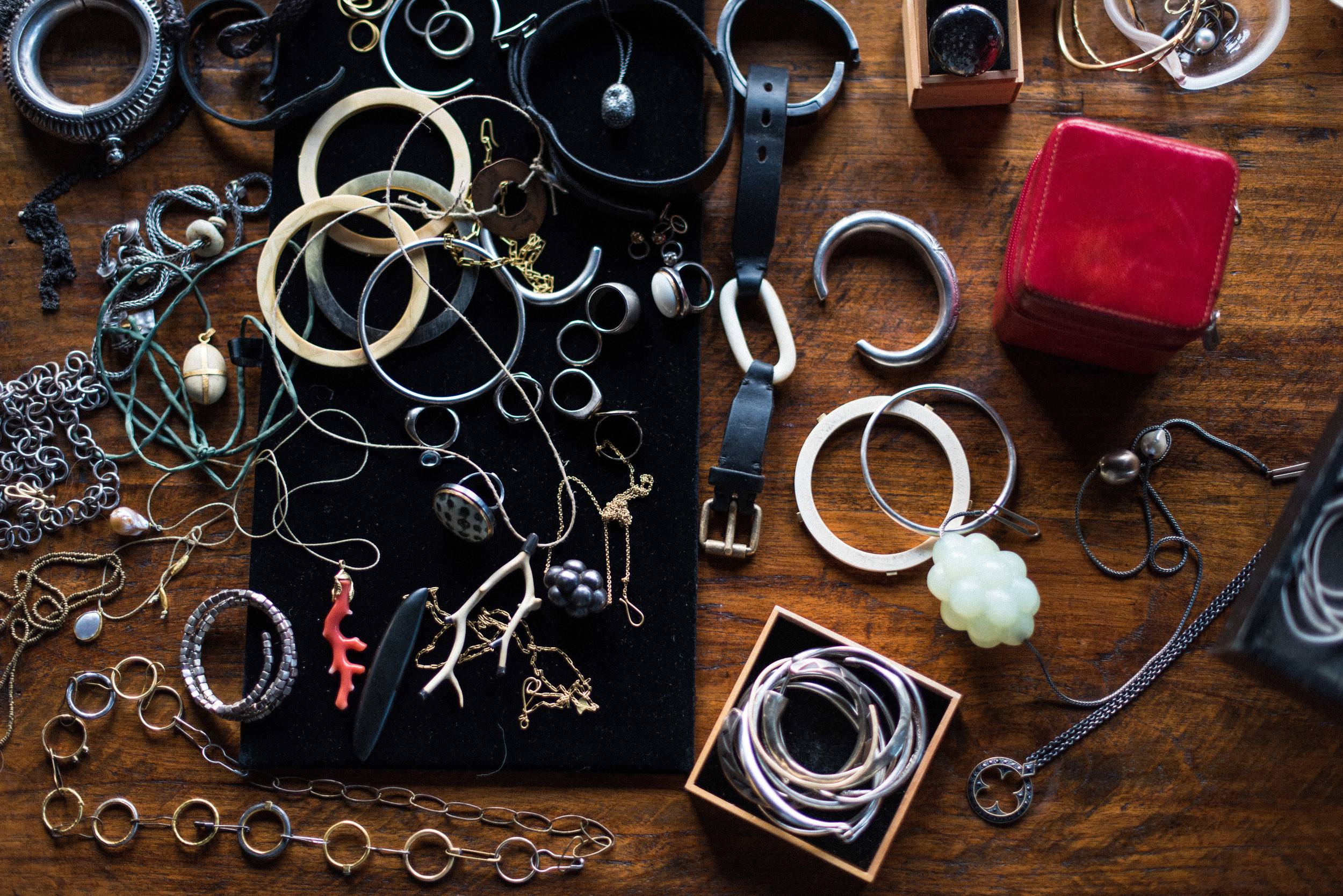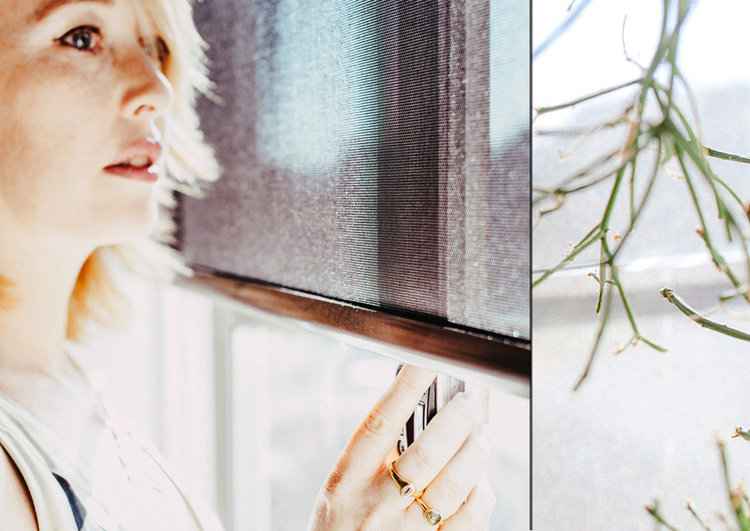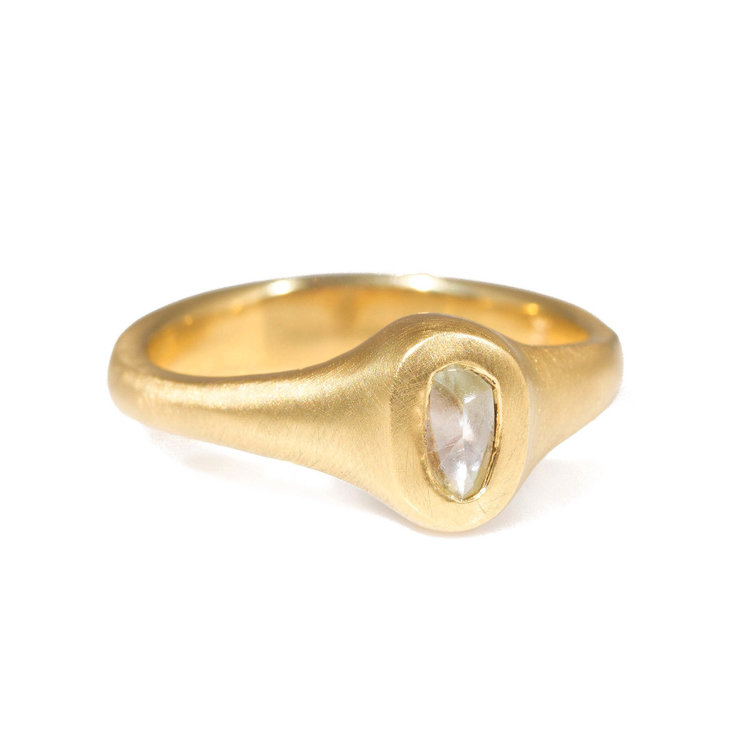Stephen and Gia at their Oakland home.
Stephen and Gia at their Oakland home.
I ‘curate’ most anything for pure pleasure; photographs, images, objects I find in nature, my jewelry, my home, my gallery, my clothing and the jewelry on others. I guess this is why I have chosen this as my profession. However, my extended dream would be to be able to curate my clients as well. What if I only worked with the people I admire, the people who inspire me and the ones whose thoughts and ideas most resonate with me?
If I could then Stephen and Gia would be at the top of that list.
I am not sure when I fist met Stephen and Gia, but it was over ten years ago. And forgive me, Gia, that my first memory is of Stephen. Not that Gia isn’t absolutely lovely and beautiful, but Stephen instantly captured my attention because he was a man. And not in a romantic way, which I’m sure is where your mind may instantly go. But Stephen clearly loved jewelry and was always wearing a well-selected assortment of handmade pieces. He captured my attention because his appreciation for jewelry was so refreshingly unique for a man.
Stephen is a scientist with longer hair and a British accent. When he comes to the gallery, he not only spends time thoughtfully handling and considering pieces but also brings interesting thoughts about life for us to dialogue about. He has always been curious about my process and we often speak about much more than simply jewelry. At first it seemed he was almost testing me to see if I was worthy of making him a piece. He'd frequently inquire about more masculine versions of pieces I had designed for women because so much of what I make is for women. Over the years he has commissioned many pieces that suit him perfectly. When I see him there is usually a new configuration of multiple pieces he has thoughtfully put together. It is so satisfying to see a straight man wearing jewelry in a tasteful way that extends beyond the clichéd male jewelry one typically sees. There are very few men who buy jewelry for themselves besides their wedding rings. It is refreshing to see a man buy jewelry for himself.
Gia, Stephen’s wife, is striking and svelte with short, salt-and-pepper hair. She too is a scientist but also an artist at heart. She makes much of her own clothing; impressively even the patterns. When she arrives at the gallery with an idea for a new custom piece, she brings a detailed sketch to illustrate her ideas. And as we work together she always has the most friendly, considerate feedback to my designs and suggestions.
Gia also curates the pieces on her body. But each piece is often worn daily and selected to go with other regularly worn pieces she already owns. Her necklaces and earrings may change, but the collection on her hand and wrist are so distinctly ‘Gia’ that I can’t imagine her without each and every ring and a few rotating bracelets she never seems to be without.
It seems that out of appreciation and curiosity for what we do, they think deeply about the gallery and my business; from how its managed to how each piece is designed and fabricated. It is rare for a client to be interested in or want to understand the underpinnings of a small business, especially those clients who have worked under the larger structures of the more traditional working world. Sometimes I swear I can almost hear the wheels in Stephen’s brain turning as he is considering and calculating my net cost, the amount of my inventory and the investment I make on each staff member. I am laughing as I think about this because it is true. Running a jewelry gallery and a working studio is a lot of balls to keep in the air at once and they both know it. I appreciate how they are so watchful of the structure and intention of my business. They have figured out that while Shibumi needs to be to be profitable to support myself and my staff of eight, there is a greater vision of creativity, community and mentorship that I am trying to achieve with all this as well.
Because custom projects have been such a significant part of my relationship with both Stephen and Gia I have asked them to share a story or antidote or funny memory about working with Shibumi. While our relationship has evolved around the gallery and jewelry, not over meals, drinks or shared outings as a friendship might typically evolve, Stephen and Gia feel like much more than just clients. They feel like friends.
Stephen’s April Higashi Enamel Panel Bracelet, Raw Diamond Cuff, Black Tourmaline Ring, pieces alongside his Shibumi Gallery jewelry collection of various artists: Claudia Alleyne, Eric Silva, Kai Wolter, Julia Efimova, Brandon Holschuh, June Schwartcz.
Stephen: Process
April has said the ideas we bring to her expand and challenge the team. Skills are built, new possibilities arise, the artist evolves, and we all find our authentic selves, either side of the equation.
If you think Process but don’t have hands-on familiarity with jewelers’ and goldsmiths’ skills, it is both easy to think yourself out of an idea and hard to explain it. Not true at Shibumi Gallery!
The Shibumi Process: describing the idea that is in my mind’s eye, while April and her team probe, show examples, and ultimately refine the idea and execute it -- damn the technical challenges (Ben, the ‘deep thinker’ Shibumi goldsmith, will solve those).
We commissioned individual but complementary rings for our 25th wedding anniversary, and for my version I started in my head with a raw diamond erupting from a slab of metal. The ring was to be worn stacked with our existing yellow gold wedding ring. Once we were beyond the Gen X entertainment factor of a 25th wedding anniversary, Claudia, jewelry artist and Shibumi gallery manager, searched me out a spectacular raw diamond at the Tucson Gem show, previewed at the edge of technology through a combination of videos and texts from whichever Shibumi phone had a signal up there in the high desert, and power at that instant. Selecting a precious stone that way was — to be generous — a challenge, but Claudia and April have taste, know mine, and were determined to find that perfect desert diamond.
The hue of the selected raw diamond informed the choice of palladium white gold alloy, the rule of thirds positioned it, and the wedding ring defined overall dimensions. The rest was up to Ben, who expertly set the stone and created an exquisite hammered finish to complement the texture of the raw diamond.
Forestland Moss photo: 25th Anniversary Rings with natural diamond crystals in 18k palladium white gold alongside original wedding rings in 14k yellow gold.
Then there were the palladium white gold thick gauge ear hoops that April envisioned and designed as elegant replacements for the generic stainless steel ones I wore for 25 years. They had to be inserted on-site by Ben as they are a continuous teardrop hoop meant to permanently adorn the earlobes. April’s previous experience with client insertion of thick continuous hoops was blood, stress, and tears and she was worried my experience would be the same. Upon arrival I was presented with oils, antibiotic wipes and worried faces. But I think Process, and had spent the previous week gradually stretching out my holes by inserting progressively thicker hoops. The PWG hoops went in first try and Ben gently pinched them into place. Smiles all around.
Gia with bamboo, Custom Adage Cuff, Quartz Earrings, Various Rings by April Higashi. Alongside Shibumi Gallery Artists: Maya Kini, Todd Reed, Claudia Alleyne, Kate Eickelberg, Christopher Neff and Sarah Graham.
Gia: It Takes A (Talented) Village
Ideas are cheap; it’s all about the execution. Genius is 1% inspiration and 99% perspiration. This Shibumi custom project put these adages to the test.
The seed was a sketch and an impression of a chunky, multi-strand beaded bracelet that would hug the wrist like a cuff, with a custom clasp as the centerpiece. Type and size of bead? Feasibility of clasp? The only certainty was that the clasp would be a hunk of rough-textured oxidized silver.
Several collaborative sessions later, the seed grew into a design, a melding of Claudia’s unique bead design aesthetic and the spirit of April’s iconic enameled panel bracelet with its refined hinge clasp. Strands and strands of round matte hematite beads, crossing over each other organically, held together by a large textured silver hinge sprinkled with cast-in-place diamond mackles, the hinge pin capped with yellow gold for a pop of color. Finally ready for execution.
Or not. Claudia flirted with insomnia, brainstorming a way to elegantly hide the knotted ends of the many strands to ensure the final piece was not “crafty”. Her eureka moment: a manifold that encases the knots and then slots into the clasp body, secured with invisible rivets.
Ben then carved the clasp wax, thoughtfully curving the back to conform to the shape of my wrist — “for comfort”. But the diamond mackles were hit and miss in the final cast, several of them lost to the depths of the silver as Ben had speculated. April came to the rescue, suggesting to flush set some small grey diamonds randomly to replace the buried bling. The resulting surface is the essence of wabi-sabi — an aesthetic principle that underpins much of April’s work — textured and organic, and quietly, barely perceptibly, sparkling.
At last, the clasp was ready. The manifolds slid into place, effecting a seamless transition between bead and metal, as if the strands are molten offshoots of the mother clasp. The illusion belies none of the precision engineering and process used to achieve it. Definitely not crafty.
Out of myriad technical challenges and a meeting of many minds emerged a unique and stunning piece of art.
Above: Gia’s hand with April Higashi jewelry alongside various Shibumi Gallery artist’s work. Gia’s partial collection of Shibumi jewelry: April Higashi, Maya Kini, Sarah Graham, Kate Eickelberg, Darcy Miro, Eric Silva, Claudia Alleyne.


